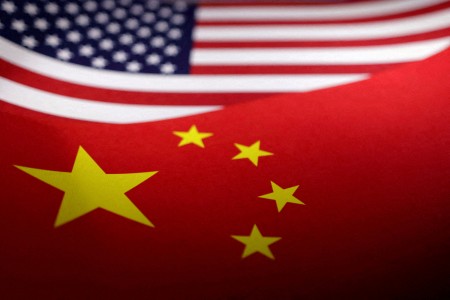 1
1 1
1
By Karen Freifeld
(Reuters) – The U.S. House of Representatives committee on China has asked the FBI and the intelligence community for a briefing on GenScript Biotechnology Co and three subsidiaries to determine if the Chinese Communist Party has influence over their operations.
In a letter dated May 30 to the FBI and the U.S. office of the director of national intelligence, committee chair John Moolenaar and ranking member Raja Krishnamoorthi said GenScript’s work with U.S. companies and the government raises concerns about the intellectual property of U.S. firms and could help improve China’s biotech capabilities.
The three subsidiaries cited in the letter are Bestzyme, Legend Biotech and ProBio.
Drugmaker Legend partnered with Johnson & Johnson in 2017 to develop cancer cell therapy Carvykti. They sold $500 million of the drug last year and expect sales to eventually top $5 billion a year.
GenScript, Legend and J&J did not immediately respond to requests for comment. Nor did the other subsidiaries. GenScript is a pharmaceutical research and manufacturing service provider with over 200,000 customers in over 100 countries and sales, manufacturing, and research and development presence in China, the U.S., Europe and the Asia Pacific, according to its website.
The lawmakers’ interest in GenScript comes two weeks after another committee in the House approved a bill that would restrict business with China’s WuXi AppTec, WuXi Biologics BGI, MGI and Complete Genomics, and other possible biotech companies of concern.
The bill must still get through the full House and Senate before President Joe Biden could sign it into law. But, if passed, it would push U.S. pharmaceutical and healthcare companies to lessen their reliance on Chinese research and manufacturing.
“GenScript’s role as a Contract Development and Manufacturing Organization, including services such as the production of custom gene synthesis for companies and U.S. government entities, raises concerns about potential risks to the intellectual property of U.S. firms and GenScript’s broader role in advancing the PRC’s (China) biotech capabilities,” the letter said.
(Reporting by Karen Freifeld; additional reporting by Mike Erman in New York; editing by Chris Sanders and Josie Kao)